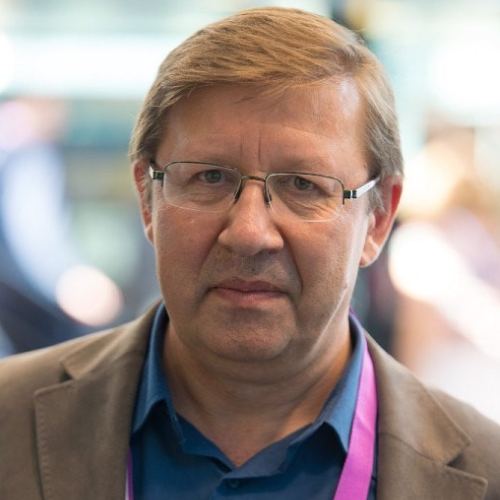
Anatoli Popov is a senior research fellow at the Institute of Solid State Physics of the University of Latvia. In 1984 he graduated from the Moscow Institute of Physics and Technology, and in 1990 he defended his Ph.D. thesis at the Institute of Physics of the Latvian Academy of Sciences. According to SCOPUS (25.02.2022), he is the co-author of over 275 articles with over 4000 citations and an H=38 index. He has been the Principal Investigator in several projects funded by the Latvian & European Research Programs (EUROfusion) totaling around 2.0 million euros. He has worked as a visiting scientist at the Kernforschungzentrum Juelich GmbH (Germany) and the French National Research Center for Nuclear Physics (GANIL). He then was a visiting professor at the Carlos III University of Madrid (Spain) and a staff scientist at RIKEN, Japan. From 2000 to 2010 he was in Grenoble as a scientist at the European Molecular Laboratory and the Institute Laue-Langevin. His main research interests include the experimental and theoretical study of electronic and optical properties of solids, radiation effects and defects in solids, radiation detection, applications of neutron, swift-heavy ion and synchrotron radiation in solid state research. He is a member of Fusion Science Department Project Board and also member of the Board on Materials in EUROfusion enabling research programme. He is also a board member of Crystal Clear Collaboration at CERN and visiting professor of Eurasian National University in Kazakhstan. In addition, in 2021 and 2022, he was the main organizer of two EMRS symposiums on the topic “Defects in Nanomaterials”, and in 2024 he will be the host of the International Conference on Luminescent Detectors and Transformers of Ionizing Radiation, which will be held in Riga in 2024.
Title of presentation: Radiation defects and their thermal annealing in functional ceramics for nuclear applications
The industrial progress of 21st century could greatly benefit from development and exploitation of fusion reactors producing environmentally clean friendly electrical energy. One of a key problem here is need in new advanced materials able to operate under extreme conditions (high temperatures and intensive neutron/gamma radiation).
In this report, I will provide a brief overview of both general information on the status of the problems and the most interesting results obtained within the two EUROfusion Enabling Research Projects – “Advanced experimental and theoretical analysis of defect evolution and structural disordering in optical and dielectric materials for fusion applications (AETA)” (2019-2020) and “Investigation of defects and disorder in nonirradiated and irradiated Doped Diamond and Related Materials for fusion diagnostic applications (DDRM) – Theoretical and Experimental analysis “ (2021-2023).
In a series of joint works by ISSP UL (Latvia), UT (Estonia) and KIT (Germany), radiation damage of some promising functional materials (Al2O3, MgAl2O4, SiO2, diamond and few more) from the priority list of the EUROfusion consortium was studied under neutron, proton, heavy ion [1-4].
The optical and dielectric, vibrational and magnetic properties of numerous crystalline and ceramic materials were carefully studied. Based on this study, we developed new theoretical methods able to evaluate and predict some important properties of these materials as well as their radiation damage evolution under extreme reactor conditions.



